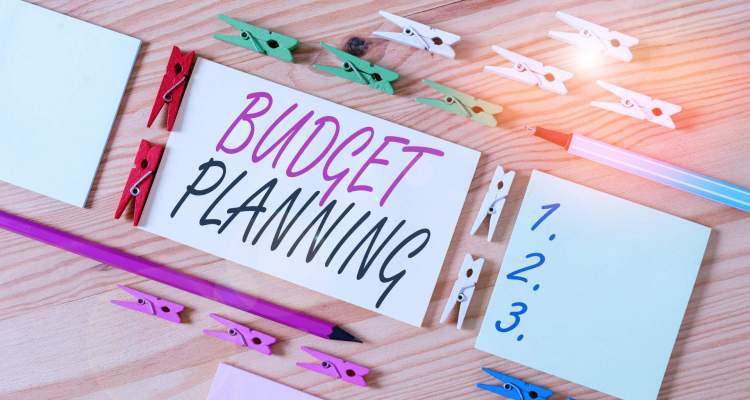
We, as a society, hate deprivation. We love, on the other hand, instant gratification. These two things are on opposite sides of the spectrum, so it’s not really surprising that we struggle with forming new habits, changes to our lifestyle, or sticking to new routines. (Let me be clear – when I refer to deprivation, I mean deprivation of extra, non-essential goods, not basic needs.)
Why do we hate deprivation? It seems so obvious – because we have to deprive ourselves, or forgo something that we really want. In a culture that is constantly encouraging us to ‘live in the moment’ and do the next great thing (or buy it!), how can we say no to ourselves? More importantly, why should we say no?
Simply put, we should reject the easy convenience of getting everything that we want, when we want it because it is often at odds with our goals. I don’t mean our lofty goals of “I’ll quit smoking someday” or “I’ll read that book in a few months.” I’m talking about defined, specific goals that we have put forethought and time into (“I will save $500 into my RRSPs by the end of the year.”). Once we have decided and outlined these goals, there isn’t room for any hasty decisions that eat up our cash and our time. All of your energy should be put towards the things that reflect who you are and the direction that you want your life to take. Oftentimes, when I meet with prospective clients, they have avoided setting such specific goals because then it is easier to let them fall by the wayside. If it’s undefined then you can’t really fail at it.
Many people act in direct opposition to their stated priorities. I’ll meet a person and they’ll tell me that creating financial security (an emergency fund, for example) is a priority; however, you’ll go over their budget and realize that there’s not any funds being set aside for an emergency. When you question the person about how they can create a space for those funds (giving up their daily latte, smoking/drinking, or forgoing Disneyland this year), they have a puzzled or annoyed look on their face. This tells me that they have not owned their priorities and aren’t ready to embrace them.
Once you have stated priorities, you can begin the stage of ‘deprivation.’ This is really just a fancy way of stating that you can now start declining anything that doesn’t work toward your stated goal. Of course, this will be harder than you anticipate. And by depriving yourself of things, I really mean the opposite – because once you identify what you truly want and are ready to focus all of your energy towards that thing, it’s not really deprivation. It’s strategy.
So how can we deprive ourselves in a world that is seemingly at odds with forgoing luxuries? Here’s some things to consider in order to stay strong:
- Compare and Contrast: Is the thing that you want right now better than the thing that you want later on? Will the thing that you want to buy immediately be worth more than the ultimate goal that you have? If you’re having trouble comparing the items, contrast them – what makes them different and which one is better? As we already know, a feeling means much more than an item. This means that the book that you want to read today may not be more valuable than the trip that you want to take in six months, even though you would enjoy the book immensely. (And you can probably get the book at the library, anyways.)
- 2) Are you a person of your word? Clichés are a writer’s enemy, but we all know that talk is cheap. Being a person of your word – telling everyone what your goal is, and sticking with it – is important. Letting yourself down constantly stops being an option once you realize that you aren’t making progress by lying to yourself or excusing your behaviour.
- 3) Stay away from temptation. Getting away from your hotspots (coffee joints, clubs, malls, bookstores, etc.) will help curb your temptation. Staying off store sites is an additional strategy, as online shopping often leads to curiosity, which leads to in person shopping.
- 4) Visualize. We all know that little luxuries can have a big impact. That coffee that we grab to perk us up on a terrible day, those concert tickets that we score in an effort to get us out of a funk….those are crutches that we use to get us through the boring times. But do you know what isn’t boring? Achieving a long-standing goal. Really visualizing what we want (the feelings, sensations) sounds far-fetched and childish, but by putting ourselves in a different place for a small amount of time might just be enough to talk us down from purchasing.
- 5) Consider the additional expenditures. Sometimes when we buy something, we don’t think about the ultimate costs. If I go to a show, I’m going to want to drink or have a meal out. If you buy a handbag, you want the matching wallet. Eyeshadow usually requires a makeup brush to apply it. All of your purchases probably have additional purchases attached to them, which makes the original purchase that much more expensive.
Deprivation sounds awful, but it doesn’t have to be. It isn’t even really deprivation, if you think about it – it’s postponing your pleasure for a different day. It’s easy to get bogged down in the day-to-day grind (“I never get to go out,” etc.) when we can’t see immediate results, but the reality is that in order to get what we really want, we have to put off what we don’t – indefinitely.






